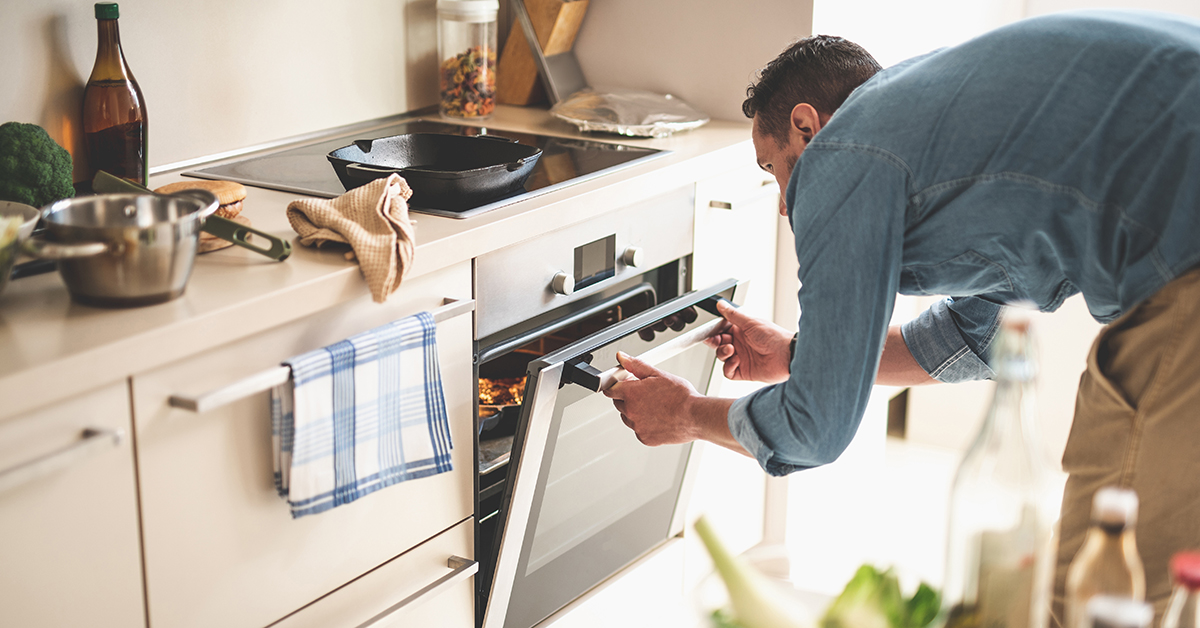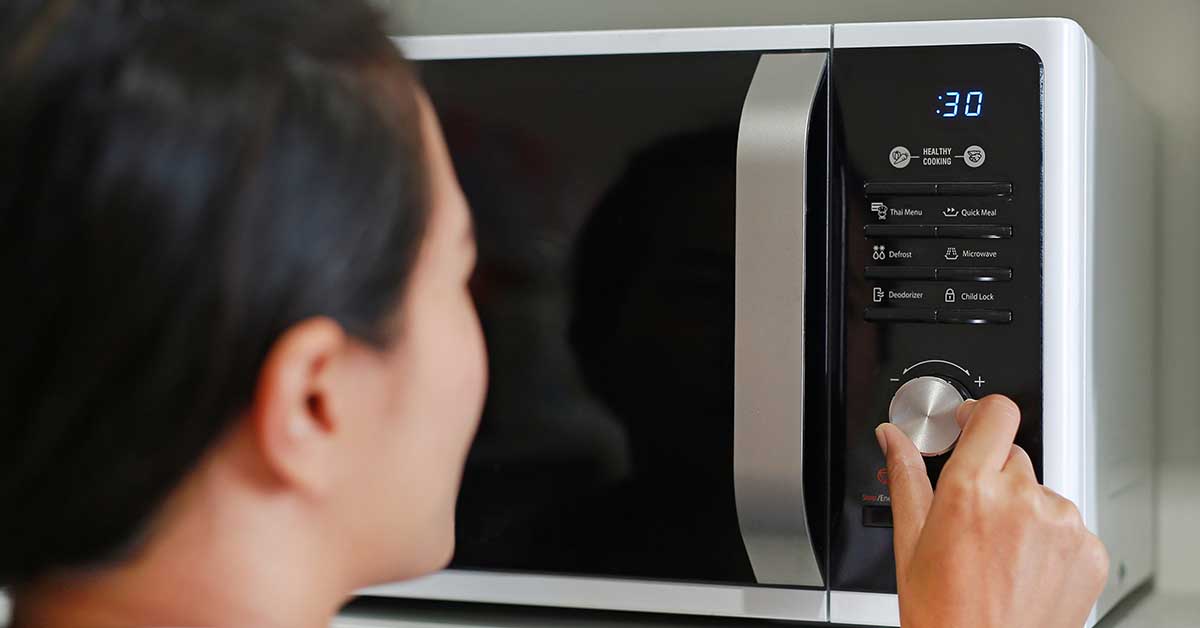
Cooking instruction services: Why you should examine the scientific rigour offered by your service provider
21 May 2025 | Greg Hooper, Microwave and Thermal Process Specialist
For food manufacturers, providing the correct cooking (heating) instructions is probably the most important thing they must include on food packaging, if they are to ensure a ‘safely’ heated product that is of acceptable quality for consumers to enjoy.
But if you are to ensure you get this right, every time, it is crucial to be working with the right service provider.
But how do you know if your existing partner is delivering what you need?
Here’s some considerations to help you with that.
Quality standards
When offering a service to verify on-pack cooking instructions it is important to be confident that your service provider is competent and can assure trials are performed under strict quality control procedures that are scientifically valid. UKAS accreditation is always an underpinning requirement, ensuring good standards are adhered to during work. One such standard is ISO 9001 accreditation, giving assurance that all quality control procedures are followed.
A UKAS accredited service provider may consider that yearly calibration checks of cooking appliances such as ovens, grills, hobs, and air fryers are acceptable, which is accepted by UKAS or ISO 9001.
Scientific merit of instruction procedures
It is important to recognise that neither UKAS or ISO9001 deeply examine the scientific merit of work, and we would consider this crucially important when relying on an external provider to generate or verify cooking instructions.
For example: a UKAS accredited service provider may consider that yearly calibration checks of cooking appliances such as ovens, grills, hobs, and air fryers are acceptable, which is accepted by UKAS or ISO 9001. However, you may wish to consider a more careful examination of this procedure for more scientific and robust outcomes:
- Firstly, if appliances are calibrated at a particular setting e.g. 200°C and the dial is adjusted, either to ‘off’ or to another setting e.g. 180°C then there can be no guarantee that the dial will be returned to exactly the same ‘200°C’ position and generate accurate appliance air temperatures. Therefore, the calibration performed will be void (once the dial is moved).
- Calibration of any cooking appliance is correct at the time of calibration. However, what if the appliance performance changes, e.g. the thermostat accuracy changes or fails the day after calibration? In this scenario the appliance could be producing an incorrect temperature for almost a whole year until the next calibration was performed.
- A product cooked with an (inadvertently) higher actual air temperature may cook in a shorter time than using the actual required air temperature – hence verified instructions based on this higher temperature may mean consumer cooked products do not achieve the required safe temperature – this could be a food poisoning risk. Conversely, a lower actual air temperature will cause the opposite effect and result in instructions that overcook the product.
So, from a UKAS and quality standard perspective yearly calibration may be acceptable for cooking appliances in general, but for cooking instruction, trials scientifically calibrated on the day of use, or if the temperature setting dial is adjusted in any way, gives far more confidence the appliance will be operating at the correct temperature.
Imagine performing cooking instruction trials for almost a whole year with inaccurate appliance air temperatures and not knowing until the next calibration that there was something wrong! That is the risk with annual calibration. We believe such an approach does not offer sufficient confidence in the results.
Products not achieving the required 70°C for 2 minutes thermal process…
We purchased and tested a range of products from retailers, including a meat joint, ready meal and chicken products. None of the samples tested achieved the required 70°C for 2 minutes equivalent thermal process (or even a minimum temperature of 70°C) after following the on-pack cooking instructions. Appliances tested included microwave and ovens. Indeed, the frozen chicken product was still frozen after following the on-pack oven cooking time and actually required double the stated cooking time to achieve the required thermal process.
These results suggest the need to ensure a thorough, scientifically reliable instruction testing procedure is adhered to, and the good news is this is a solution that Campden BRI can support you with.

Why Campden BRI has the right experience to help with cooking instruction validation, verification and generation?
Campden BRI’s Instruction Service department prides itself on the sound scientific knowledge and background behind its procedures. It is headed up by Microwave and Thermal Process Specialist, Greg Hooper, who has 35 years of service in this role, with the combined experience of the Instruction Services Team totalling 65 years.
More widely, our expert team consists of qualified chefs, thermal process engineers, physicists, and food technology experts. They have unrivalled experience and knowledge across the complete range of domestic cooking appliances – including ovens (gas, electric and fan), hobs, grills, microwaves, air fryers, deep fat fryers, steamers and toasters. This also includes helping to write BRC Cooking Instruction Guidance and retailer protocols.
The benefits Campden BRI can provide compared with using other service providers
If you are unhappy with the service offered by your current provider, or just curious about the improved ways of working you could experience with another partner, you might like to view the following benefits of working with us.
- Access to a huge amount of knowledge and experience in this area, from world leading experts – there is always a solution to a problem!
- Access to linked supporting scientific areas such as chemistry (e.g. acrylamide analysis), microbiology (pathogenic bacteria information), sensory (organoleptic panel testing), regulatory requirements.
- All our work is based on sound scientific principles – and you are dealing with the experts who are often directly involved with helping writing retailer instruction protocols.
- A simple quoting cost structure – one quote, no add ons later for full reports, product images, thermal profiling graphs etc. – everything is included in the initial quote.
- No complicated forms to fill in, just one simple form – just straightforward information like cooking method required…
- No ridiculous extra charges if the work is urgent, we have a single cost for work whether it is performed next day or in a couple of weeks’ time.
- ALL trials are performed using time temperature data logging equipment, so if products do not achieve the required thermal process (e.g. equivalent to 70°C for two minutes) we can simply extend the cook time until they do, and supply the client with the new required cook times at no additional cost and without having to rebook or supply additional products – all at the same time the work was originally booked in.
- There are always experts available to discuss work or results with, and the same experts will advise if any ‘unusual’ results are encountered and offer solutions (e.g. unexpectedly long cook times, packaging performance issues etc.
If you would like to get up to speed with our expertise in this area, you might like to read some of our relevant marketing material.
Our relevant service pages:
Free to download white papers:
Interestingly the ‘concerns’ about the variability in performance of air fryers exposed by us a couple of years ago and their safety in use has recently been highlighted by Aviva insurance company who have just released the following ‘fire warning around air fryer habits’
For more information about our services and the wider support that we can offer in this area, please visit our cooking instruction verification and generation services page.

About Greg Hooper
Greg has worked here at Campden BRI since 1990, after studying Applied Science (Physics and Chemistry). As part of his extensive knowledge and experience in thermal processing and microwave cooking, he was instrumental in setting up the microwave heating category rating system used in the UK, and has travelled internationally assisting and advising on the safe development of microwave products and rating systems.
How can we help?
Have you got an urgent question on anything related to cooking instruction, whether that’s validation, verification or generation?
Want to enhance your cooking instruction or thermal processing skills?
Why not take a look at the wide-ranging courses we offer in these areas, both online and face to face.







